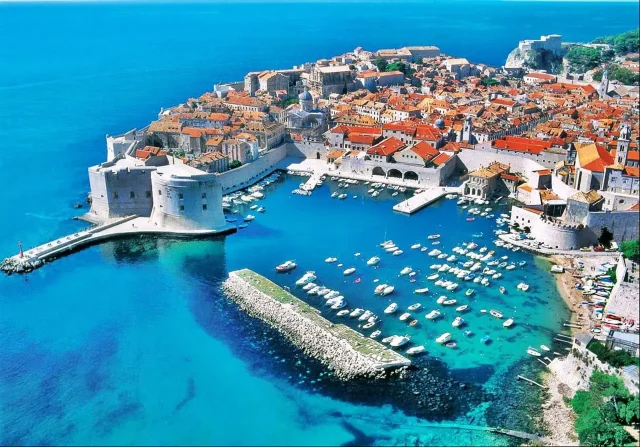
On their second Culture Weekend day in Dubrovnik during their next European Congress on Family (II edition, October 2024), the ECR Party leaders will discuss the matter of a conservative education for modern times; that is, reintegrating optimistic patriotism and unbiased excellence in European education.
A panel of six Members of the European Parliament coming from five Member States, plus three experts, have been invited for the purpose.
With regards to MEPs, Mrs. Jadwiga Wiśniewska and Mr. Patryk Jaki will present the Polish perspective. Mrs. Wiśniewska is a graduate from the Higher Pedagogical School in Częstochowa and for many years worked as a teacher and then headmaster of a primary school, so she knows first hand what education is about. Romania is represented by Mrs. Georgiana Teodorescu, while Elena Donazzan comes from Italy. Mrs. Donazzan has been Venetian regional minister of Education for almost twenty years. The Bulgarian Mr. Ivaylo Vulchev is a poet, screenwriter, and lyricist, having co-written his nation’s song in the Junior Eurovision Contest of 2014 and 2015. And to close the representation of Members of the European Parliament in the panel, Mr. Stephen Nikola Bartulica from Croatia is a strong defender of the rights of parents to decide on the education of their children.
Furthermore, the panel will be enriched with Nicholas Tate, a UK historian having worked at senior level in education in different countries, including England, France and Switzerland. The journalist Amandine Hirou is in charge of the education section in the French magazine “L’Express”. Finally, Sarah Saldmann, also from France, will contribute with her perception as a lawyer, columnist and author.
At the initial phase of the parliamentary term in Brussels, the political groups are discussing their priorities in education from 2024 to 2029.
As a horizontal item, the Culture and Education Committee in the Parliament (CULT) proposes to follow its support on the Erasmus+ programme, the EU’s programme to support education, training, youth and sport in Europe.
With regards to education policy, the same parliamentary committee wishes to monitor progress of the European Education Area (EEA), a European Commission initiative supposedly helping Member States work together in education. However, one should not forget that both educational systems as well as educational content are national competences which the European Union should not trespass.
In particular, together with EEA the CULT committee will survey the professional situation of teachers in the EU across different Member States. It would be interesting to analyse their working conditions, including whether their contract is fixed or temporary.
Further issues are those of digital skills and non-formal learning, including so-called micro-credentials. These should not be fostered to the detriment of classical education and good quality formal learning.
Early childhood education and schooling should not become an excuse for the State taking the role of parents, particularly mothers, in the education of their children at home when during their first years of age, as much as they wish to do so and see fit.
Some political groups desire to contribute to policy developments in the field of the higher education by creating a European Degree and European Universities Initiative. However, it is difficult to see how this would not contradict the principle of subsidiarity.
Educational centres should protect students against bullying or harassment, as well as promoting their physical and mental health. Nevertheless, this should not become a euphemism for promoting ideology in education under the disguise of anti-discrimination; neither can anti-racism serve as a portal to promote the entry of illegal immigration.
Last but not least, MEPs could address specific opportunities and risks of the use of Artificial Intelligence (AI) in education.
Source of image: Turismo Dubrovnik



 Subscribe
Subscribe